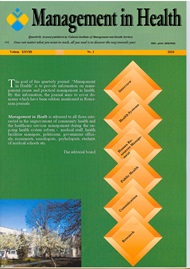Abstract
Heart failure (HF) is a major public health issue that requires specific
policies addressing its management in an integrated manner. DRG analysis
provides a robust foundation for understanding the costs and complexity
associated with HF and can support policymaking by delivering scientific
evidence. These data can be used to identify areas in need of improvement, such
as reducing hospital stays and preventing readmissions.
A multidisciplinary approach that includes patient education, cardiac
rehabilitation, remote monitoring, and the involvement of primary care physicians
can reduce recurrent hospitalizations and improve long-term outcomes.
Integrated information systems, supported by in-depth analyses and
telemedicine tools, can facilitate patient monitoring, risk prediction, and efficient
resource allocation. Future research should focus on developing predictive
models based on artificial intelligence to identify patients at high risk of
readmission and implementing regional pilot programs for HF management.

